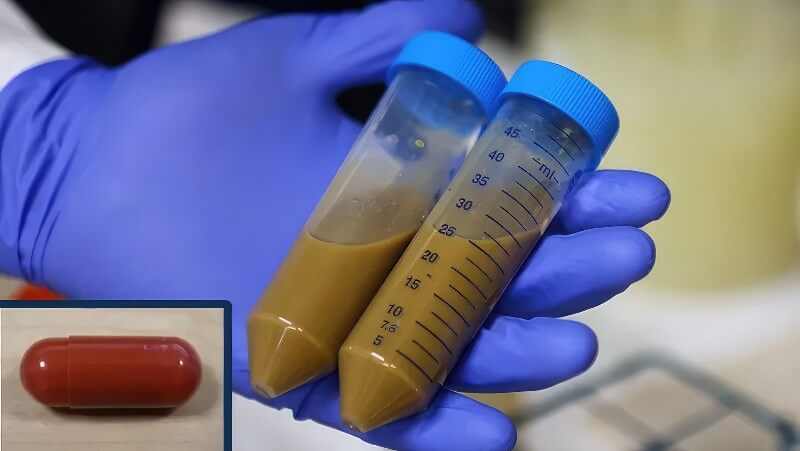The UK is set to initiate a clinical trial that explores the potential of a “poo transplant” in treating advanced liver disease and combating antimicrobial resistance, according to researchers.
The trial, known as PROMISE, will be led by King’s College London and funded by a partnership between the National Institute for Health and Care Research (NIHR) and the Medical Research Council (MRC). It aims to recruit patients with cirrhosis from across the UK to investigate whether oral Faecal Microbiota Transplant (FMT) capsules, derived from freeze-dried stool of healthy volunteers, can reduce the risk of infections.
Cirrhosis, which refers to the irreversible scarring of the liver, is the third leading cause of mortality and loss of working life in the UK. Individuals with cirrhosis often possess an elevated number of harmful bacteria in their bowels, rendering them highly susceptible to various infections. Overuse of antibiotics has resulted in the decreased effectiveness of these drugs in treating such infections, and the bowels of these patients can become infected with drug-resistant bacteria, known as “superbugs.” Infections in people with cirrhosis can be severe and sometimes fatal.
Researchers from King’s College London have demonstrated that the harmful bowel bacteria in cirrhosis patients can be replaced with healthy bacteria from healthy volunteers through FMT, a process that involves transplanting fecal matter. The initial findings from the PROFIT trial, a safety and feasibility trial conducted in 32 liver patients across Europe, were presented at the EASL 2023 Congress in Vienna, Austria.
The PROFIT trial involved administering FMT via endoscopy and showed that the procedure was not only safe and well-tolerated but also led to modifications in gut microbiota, enhanced intestinal barrier function and antimicrobial mucosal immunity, and improved the metabolism of the toxin ammonia.
These significant findings instill renewed hope for patients grappling with advanced cirrhosis and present a potential breakthrough in their treatment. The next phase of the research, the PROMISE trial, will utilize FMT capsules, eliminating the need for invasive endoscopy procedures.
Professor Debbie Shawcross from King’s College London, the Chief Investigator of the PROMISE trial, emphasized the trial’s importance: “This landmark trial provides evidence that a faecal transplant can improve gut health by modifying the gut microbiome and reduce ammonia levels in patients with cirrhosis. Initial findings from PROFIT are promising news for patients with chronic liver disease who are in desperate need of alternative treatment options.”
The PROMISE trial, which aims to recruit 300 patients across the UK, will be conducted at multiple sites and involve random allocation of participants to receive either FMT capsules or a placebo every three months for two years. The British Liver Trust, a collaborator in the trial, expressed their support for this groundbreaking research and its potential to transform the lives of patients. Pamela Healy, Chief Executive of the British Liver Trust, highlighted the importance of involving patients in the study’s various stages and the potential wider implications of this research in tackling antimicrobial resistance.
The initiation of the PROMISE trial brings hope for individuals with cirrhosis and drug-resistant infections, providing a possible alternative to liver transplantation, which may not be feasible in the presence of antimicrobial resistance. By enhancing the body’s natural immunity through the modification of the gut microbiome, this innovative approach could contribute to addressing the global challenge of antimicrobial resistance and potentially save healthcare systems worldwide millions of pounds.


